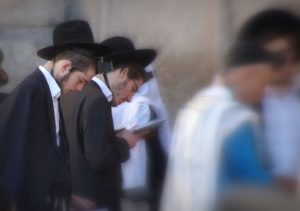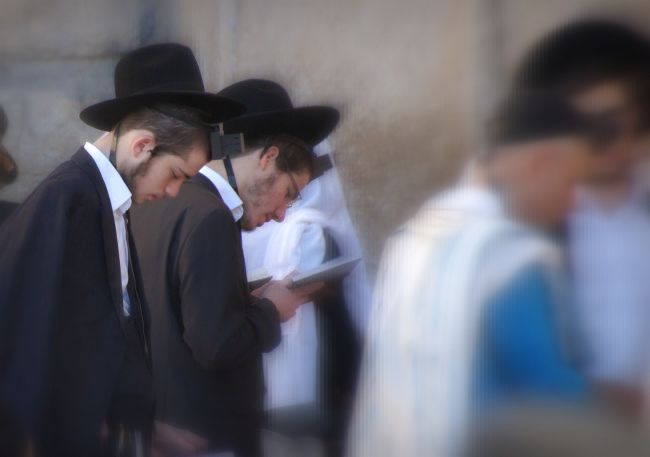
This week we conclude Sefer Breishis {the Book of Genesis} with the parsha of Va’y’chi. “Va’y’chi Yaakov b’Eretz Mitzrayim {And Yaakov lived in the land of Egypt} for seventeen years. And the years of Yaakov’s life were one hundred and forty seven years.[47:28-29]”
The parsha of “Va’y’chi Yaakov {And Yaakov lived}” paradoxically deals with Yaakov’s preparations for his death. It’s interesting to note that the two parshios which contain the word ‘life’ in their title (Chayai Sarah – The life of Sarah and Va’y’chi – And he lived) deal with death. The Torah’s clear demonstration that true ‘life’ encompasses far more and extends far beyond our definition of that term.
Yaakov summoned his sons in order to bless them before his death. “Yehuda, atah yoducha a’checha [49:8],” literally meaning, “Yehuda, your brothers will admit to you.” The Kli Yakar explains as follows. Because you put aside your embarrassment and admitted to having relations with Tamar, commensurately, your brothers will put aside their embarrassment and will admit and confirm that you alone are worthy to be the king.
The Medrash relates the extent of Yehuda’s kingdom. Hashem said to Yehuda, “You saved Tamar and her two sons from being burnt to death and you saved Yosef from the pit he’d been thrown into, you will reign in both this world and the next.”
Rav Sholom Schwadron zt”l asks why such a big deal is being made out of Yehuda’s admission that Tamar was pregnant from him. Did he really have any other choice but to admit?
Tamar, disguised herself and had relations with Yehuda without him realizing that it was her. She was thereby fulfilling the mitzva of ‘yibbum’ {levirate marriage}– lending continuity to her late husband, Yehuda’s son. The Yehuda-led court, unaware that Tamar was pregnant from Yehuda, sentenced her to death by burning for her seeming infidelity. As Tamar was being led to her death she sent them Yehuda’s signet ring, cloak and walking stick. “I am pregnant from the man that these belong to!”
What alternative did Yehuda have when he recognized his articles? Could he have murderously stood idly by while his daughter-in-law, pregnant with two babies fathered by him, would be burnt to death?! The reward he received reveals the difficulty of the test. What was the test? What could he have done?
Rav Sholom explains that Yehuda could have rationalized…
‘True, if I don’t admit, innocent people will die. However, if I do admit won’t it be a chilul Hashem {a desecration of Hashem’s name}? What will happen to the honor of the courts and the judges? Won’t it reap scorn onto the Kingdom of Israel that I will head? No! No! I can’t admit… It will be a transgression for me to admit…
‘How about the murder of innocent people? I’ll work things out… As the leader of the beis-din {court} I’ll announce that in light of the new development, the arrival of a ring, cloak and staff, the court has decided to hold further deliberations. I’ll then find ample doubts to indefinitely postpone the actual death sentence. No one gets killed and the honor of Hashem, the courts and the kingdom remains intact.’
Yet, Yehuda didn’t allow himself to get sucked into such calculations. He ignored the enormity of the humiliation he was about to suffer. There he was, the leader of the court. Who else sat with Yehuda on this court? His grandfather, Yitzchok Avinu and Shem, the son of Noach. Such leaders were surely surrounded by their disciples, soaking up their every word and nuance. Undoubtedly, there were also many onlookers, interested in following the developments of this rather sensational case and wanting to get a glimpse of their generations greatest and holiest leaders.
And then, the climactic moment… Tamar is being led to her death. All eyes are glued. Absolute silence. Yehuda sees the items. He recognizes them. No rationalizations are made. He shouts, “She is righteous! It was me!” Every single eye turns toward Yehuda as a collective gasp is heard. You?! Our judge?! The tzaddik {righteous individual}! It was you?!
Who can imagine the stomach-dropping humiliation of that moment? What gave him the strength to do it? Honesty… No rationalizing. No misleading. Nothing less than the pure and brutal truth. Immediately! No hesitation! Any delaying would have prolonged a misunderstanding. It would have prolonged falsehood. It wasn’t an option.
The question: ‘Who’s a Jew?’ is one that often finds its way into the headlines. The name Yehudi {Jew} comes from the name Yehuda {Judah}. It means to acknowledge, to admit. Why was his name chosen to be the banner-carrier of the entire nation, even of those who in fact descended from his eleven brothers? Targum Yonasan ben Uziel writes: “Yehuda, you admitted to the incident with Tamar, as a result the nation will be called by your name, Yehudim {Jews} [49:8].” Honesty. Pure, unadulterated, not from concentrate honesty. That’s “Who’s a Jew”. That’s how we got our name. If we’re not following in the path of Yehuda then we’re not deserving of his name.
Rav Chatzkel Levenstein zt”l, the renowned mashgiach {spiritual leader} of the Ponevezher Yeshiva had a grandson in America who was critically ill. One Friday night, the child passed away. After Shabbos, the family sent a telegram to Rav Nachum Pertzovitz zt”l of the Mirrer Yeshiva informing him of the sad news and asking him to gently break it to Rav Chatzkel.
Rav Nachum went to Rav Chatzkel and quietly said, “We received information from America.”
“I know already,” Rav Chatzkel replied. “Friday night I had a dream that my late father and another man buried the child wrapped in the cover of a Sefer Torah.”
The two had spoken for a few minutes when there was a knock on the door. That day was the thirtieth day since the passing of Rav Isaac Sher, zt”l, the Slobodka Rosh Yeshiva. Eulogies were scheduled to be given and Rav Chatzkel was slated as one of the speakers. “When does the Mashgiach wish to go to the eulogy?” asked the young man who had entered.
“I can’t speak there today,” Rav Chatzkel replied softly. “I know that if I’ll speak about Rav Isaac it will awaken in me a sadness that I feel about my grandson. I’ll be moved to tears. Those attending will think that I’m crying for Rav Isaac but I’ll know that I’m really crying for my grandson. I do not want to shed false, misleading tears…”
I recently heard an amazing story. A woman called a certain chevra kadisha {burial society} asking them to come and tend to her husband. Although she was not a member of that community, she explained that she and her husband had not been affiliated with any community. When they arrived they found her alone with her late husband. Explaining that they had no relatives or friends who would take her to the cemetery, she asked for a moment to say good-bye before they’d take him to his burial.
One of the members of the chevra kadisha overheard as she bent down to her husband. “Itchik, you’re going to the World of Truth. Tell them not to be upset with us that we had no children. Explain to them that it wasn’t our fault. We wanted to have children but what could we do. We lived in Russia. And for seventeen years there was no mikveh. By then it was too late. Explain it to them Itchik…”
Honest people. Rav Chatzkel — one of the greatest of his generation — refused to mislead anyone with false tears. Itchik and his wife — simple Russian immigrants — with super-human resolve refused to rationalize and go against the little that they knew. Honest people. The true answer to the question “Who’s a Jew?”.
Chazak, chazak v’nischazek. Good Shabbos,
Yisroel Ciner
Copyright © 1998 by Rabbi Yisroel Ciner and Project Genesis, Inc.
The author teaches at Neveh Tzion in Telzstone (near Yerushalayim).


